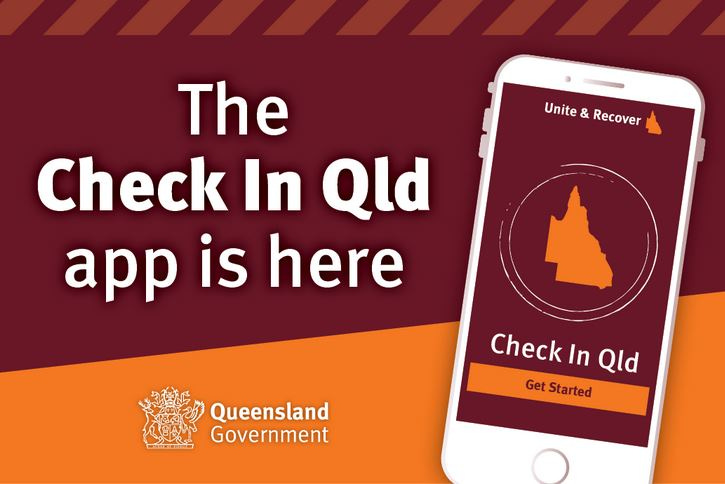Australia – Envy of the world or dystopian purgatory?
by Markus Sprig
As covid continues its inevitable spread across the globe, Australia remains a poster child for lockdown proponents. An isolated island continent with a mild climate, car dependent suburbanised population, and penchant for militaristic border control, Australia holds innate the conditions for pandemic management shared by few other places.
With its borders sealed and strict lockdowns, Australia all but eliminated covid. A fact that emboldened health authorities around the world to insist that if Australia could do it, so could you. Armed with flawed mathematical models and the fallacious post hoc evidence that A is the cause of B because B occurred after A, lockdown enthusiasts helped the “Australian approach” go viral among health policy makers. Despite growing evidence to the contrary, if your country’s lockdowns weren’t working, Australia had the answer; lockdown harder.
If measures for success relate only to the number of days without lockdowns and low covid cases/deaths per million, Australia is doing very well indeed. In most parts of the country you can usually go to restaurants and bars, concerts, and large scale sports events, and freely associate with others. I was in a full theatre yesterday without a mask in sight. Knowing anyone who has had covid is rare. Knowing someone impacted by a covid death; almost unheard of. In most places, masks are not required and very rarely worn. For those suffering under strict lockdowns in other parts of the world such a situation probably sounds heavenly. Our politicians make sure to remind us; we’re the “envy of the world”. At least that is, until we’re not.
As I write, covid has once again breached the walls of fortress Australia. Residents of Melbourne, last year tormented for more than three months under one of the world’s strictest lockdowns, were again confined to their homes. Much of Sydney is currently living under growing levels of house arrest and my city of Brisbane is primed to do the same. Australia’s “aggressive suppression” strategy relies on being able to trace and isolate small numbers of cases before they can spread. Once cases get too high, the web of contacts becomes unmanageable. This results in immense pressure to lockdown. Reports of a single case in the community have been grounds for the imposition of “circuit breaker” lockdowns affecting entire cities and states. My city has been subjected to two just this year, neither of which materially prevented a single case (all cases were self isolating prior to the lockdown). On average, Australia locks down some part of the country every 12 days.
This wasn’t how it was supposed to be.
Political leaders assured us that the martial law imposed on Melbourne last year was intended to prevent such “yo-yoing” in and out of lockdowns. But like a Sword of Damocles hanging over the head of every person in the country, lockdowns can now be expected at any moment. It happens fast. When I starting writing this article yesterday things were “normal” where I live. As I edit today, two new cases have emerged and new restrictions have been announced.
Every Australian knows the drill. The press drops reports of a new community case or variant (each naturally more transmissible and deadly than the last). Within hours it’s become conversation: “Did you hear it’s back in Brisbane?” says a friend. “Get your dunny paper, new lockdown coming mate” advises a friendly shop attendant. Then comes the inevitable press announcement and before you know it, it’s once again a crime to leave your home for all but essential purposes. Masks become mandatory everywhere. All non-essential businesses and services must close.
For many, able to work from home in comfortable surroundings, a short period of such restrictions presents only minor inconvenience. But for others it means the cancellations of weddings, funerals, and important life events. It means being locked inside with domestic abusers. It means small business owners potentially losing a lifetime of effort due to government decree. For casual workers dependent on their upcoming shifts, it may mean missing their rent or bills – prior to the pandemic 40% of Australians already reported living paycheck to paycheck. Hospitals ban visitors, harming the well-being of patients and their families, and cancel non-essential treatments adding to a growing backlog of procedures. State borders slam closed with little warning, ending planned holidays and family visits, stranding interstate visitors, and preventing residents returning to their homes. Not even visiting a dying relative or uniting a new born baby with its parents are immediate grounds to cross borders. These “circuit breakers” represent huge impositions on tens of thousands of people, yet they are often flippantly imposed purely to assist contact tracers.
Then, when the cases cease, house arrest is lifted. Over the followings weeks further restrictions are gradually eased and life returns to new normality. Until the next time.
I say new normal because despite long periods without restrictions, things are fundamentally unlike anytime prior to to March 2020. We have restablished our prison island heritage. Australian citizens are not permitted to leave Australia without a permit. Even if you could, Australia’s mandatory hotel quarantine internment require anyone entering the country to spend a minimum of two weeks locked in a hotel room (an Aussie policy now familiar to people in many other countries). To add insult to injury, you’ll be sent a bill of several thousands dollars to cover the costs. Even internal travel requires quarantine detainment when cases seep out of the system. Because of the low capacity in these facilities, there are tens of thousands of Australians stuck overseas, unable to return. During the Indian outbreak, Australian citizens were even forbidden from returning. Surely that’s against international law you might say? You’d be right. But that hasn’t stopped Australian governments. Even clear violations of the constitution are waved through by High Court justices; completely appropriate interventions considering the state of exception they say.
There’s an inevitability to lockdowns in the public imagination.
The populace has been conditioned to expect lockdowns with every new outbreak. Many clamour for them. Perhaps most disturbingly, public concern appears less about covid health implications, and more about avoiding longer lockdowns. We have to lockdown the city to save it from lockdown. Lockdowns are freedom. Such doublespeak is embodied in the official health slogan of the Victorian Government: “staying apart keeps us together.”
When we aren’t locked down, the safety theatre remains. Incessant loudspeaker announcements, advertisements, billboards, stickers on floors, workplace briefings, highway signs, and screens reminding everyone that covid still lurks. Surveillance systems serve as additional reminders. In many states, you must “check-in” at government mandated QR phone scanners outside every place of business. Registering at these checkpoints is compulsory. in some states police have been known to seal store entrances and, after checking registrations against the central database, issue thousand dollar fines to anyone inside who failed to check-in. Then there are the ever growing harms; the missed medical treatments, the burgeoning mental health crisis, growing inequality, and a soaring stimulus injected housing market making life increasingly more difficult and precarious for the poor and everyday worker alike.

Despite outward appearances, things are anything but “normal” in Australia.
This is the reality of a “zero-covid” society; a shield from the harms of a single disease, at the cost of ceding core human rights to the state. A life on tenterhooks, where it is impossible to plan a meaningful existence due to the risk of sudden arbitrary cancellation. The question therefore becomes; is it worth it? After all, lives have surely been saved. With vaccines now available, perhaps this was in fact a master stroke and vindication of a benevolent modern state? Evidence of public policy makers instituting a clever strategy to prevent death until vaccines can do their work, after which it happily relinquishes its newly acquired powers and we all go back to living happily ever after?
I don’t buy it. Australia’s “success” is more likely the result of our geographic advantages; the “lucky country” of the pandemic world. Australia chose the lockdown path long before vaccines were available, with no way to back out. From the start there was no plan, just craven short term political myopia limbicly reacting to frightened calls to “do something”. Even with vaccines, the level of fear surrounding covid case numbers doesn’t bode well for a sensible path back to normal. And despite the apparent success of minimising covid death, serious damage continues to be inflicted upon the population. We’re poorer, more traumatised, and more divided and unequal. But perhaps most disturbing is the new precedent now firmly set for state intervention into the most intimate aspects of individual lives. A latex covered fist given social license to discipline and control in the common good.
It is the imposition of this top-down, technocratic, authoritarianism that grasps and holds us most firmly in uncertain purgatory.
The path out is clear. People are expert in their own lives. People need open and honest information from other experts, and to be free to make their own decisions without coercion. People need to be able to evaluate their own risks in relation to their values, and to work with their communities to help others do the same. Australia’s lockdowns as an inevitable policy response represents the exact opposite vision. A totalitarian misanthropic choking of individual autonomy that damages all other human values in the name of covid.

I agree with you, my friend. I hope the government there comes to its senses. Thank you for this well-written and thoughtful piece. God bless.